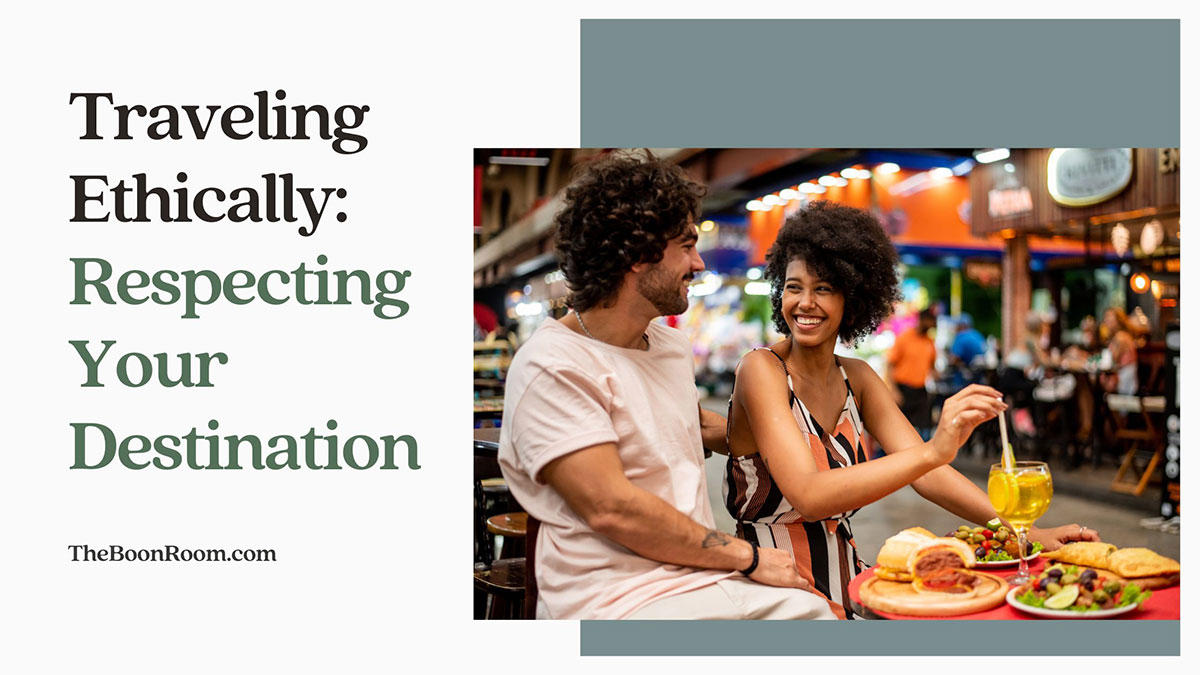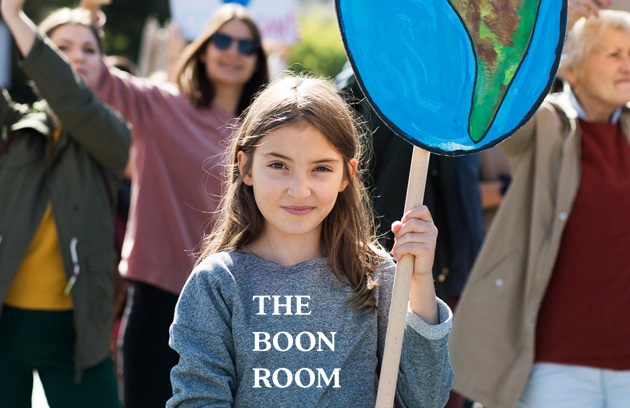Ethical travel means that you are aware and mindful of the consequences of your travel. In recent years, especially following the pandemic, the concept of ethical tourism has been on the rise. You understand that as a tourist, your actions can directly impact the local people, environment, and economy. When traveling, simple actions can make all the difference in ensuring your impact is one of positivity.
Travel is rewarding for the individual, as well as the area traveled. Tourism can provide economic stimulation to an area. Tourism brings in more people to stay at area accommodations, eat at local restaurants, and purchase from local stores and boutiques. This, in turn, provides better employment opportunities for locals. Travel helps sustain these areas, essentially giving back to the community.
The Importance of Ethical Travel
Travel provides a way to experience a different way of life. You gain insight into another culture’s customs and beliefs. People often travel for personal benefit. They want to take a step away from their daily lives and immerse themselves in something they find rewarding. There is nothing wrong with this desire, as long as it doesn’t come at the expense of others.
Some common problems that tourism can create include:
- Overcrowding
- Degradation of the environment
- Threat to culture and way of life for locals
- Pricing out residents
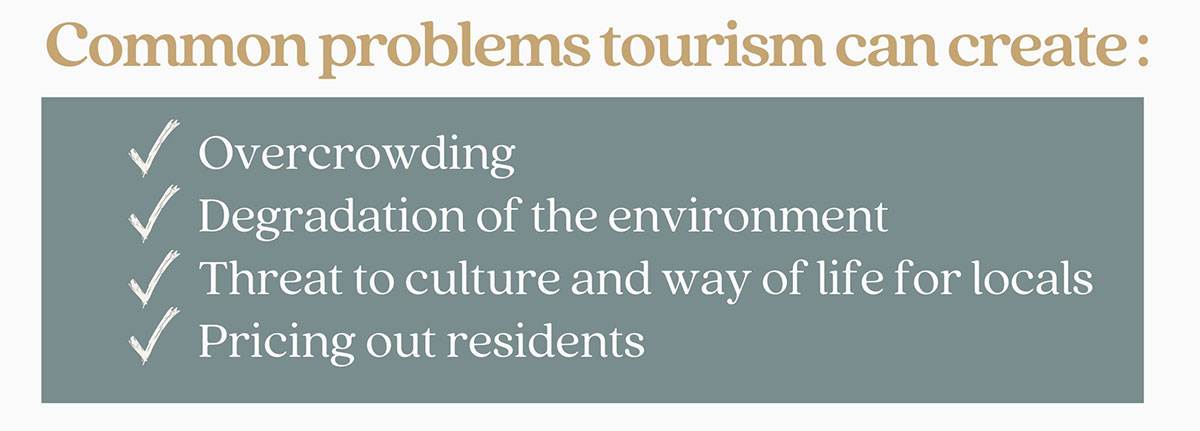
Ethical Travel Tips
There is no set definition when it comes to what it means to travel ethically. Also referred to as responsible travel, this type of tourism can look differently, depending on the traveler. For some individuals, this can mean traveling by means that reduce environmental footprints. For others, it can mean taking the time to truly connect with local peoples and their culture. Whatever ethical travel looks like to you, these tips can help get you started.
Consider Skipping on Over-Tourist Spots
Tourism is a great way to explore the world, but there are areas that experience over-tourism. There is a fine balance between tourism helping an area and damaging it. Popular destination spots can be overwhelmed by tourists. Over-tourism can lead to serious problems, such as strain on the area infrastructure, destruction of natural habitats, misuse or mistreatment of wildlife, and pricing out locals due to gentrification. Before booking anything, consider traveling to somewhere that is off the beaten path.

No matter whether you are looking for sandy beaches, diverse food options, or a rich culture, odds are, you can easily find what you want without having to go to a destination dealing with over-tourism. There are many benefits to traveling to lesser known destinations. For instance, you won’t have to deal with as many tourists yourself, which can provide a more peaceful and relaxed experience. You’ll likely pay less to travel, find better accommodation, and be able to connect with the locals on a different level.
Support Local Tourism Businesses
Even within your own community, you have the option of supporting big corporations or your local mom-and-pop stores. This is no different when it comes to traveling. With ethical tourism in mind, being conscious of where your money goes matters just the same as it does when you are in your own community. When considering excursions or tours, look for local companies.
This often provides a richer and often more affordable experience. You’ll likely travel in smaller groups, with true locals who know the area and can provide experienced insight that can allow you to get the most out of your trip. When considering gifts and souvenirs to bring back home, buy from local markets instead of the airport gift shop or from your hotel.
Learn the Local Language
Ethical travel doesn’t mean you have to be fluent in the local language, but knowing just a little can go a long way. Ethical travel is about much more than how and where your money is spent. It is about making real connections to the people and places you go. Learning just a few phrases such as “thank you,” “please,” and “hello” demonstrates your openness to learn and show respect for their local language and culture. There are numerous apps that can help you learn some local phrases before your trip, as well as provide translation resources when necessary.
Eat Local
If you are traveling somewhere new and exciting, skip the comforting chain restaurants at home. When possible, eat at restaurants that are locally owned. When traveling, you want to have an authentic experience. Nothing gets more authentic than a genuine local meal prepared with local ingredients by someone who takes pride in what they prepare.

You can always do a bit of research before you travel, or ask a taxi driver or hotel clerk what places they would recommend. Your server will likely be a great resource for other great food places, as well as having ideas for what to do for fun and sightseeing.
Learn About Local Culture
It is important to understand that when traveling, you should adapt to the local culture, not the other way around. When considering ethical travel, really learn about the place you are going.
Consider the following questions before booking your trip:
- What are their cultural norms?
- What rules do they live by that differ from yours?
- How does my presence impact their community?
Even if you don’t agree with certain aspects of a culture, you should still be willing to respect it if you are planning a trip to that destination. You should be especially aware of any religious or sacred sites that require specific rules to be followed. This ensures that you don’t disrespect people or cultures and that you don’t find yourself in any trouble with authorities.
Be Kind to the Environment
A lot of travel decisions have to do with the environment of the area. People may want to escape the city and retreat to a beautiful sandy beach lapped by the waves of the clear, blue ocean. Tourists may want to dive into the ocean, snorkel around coral reefs, and enjoy the fish and sea life. Or maybe wild jungles, deep forests, or desert planes call your name.
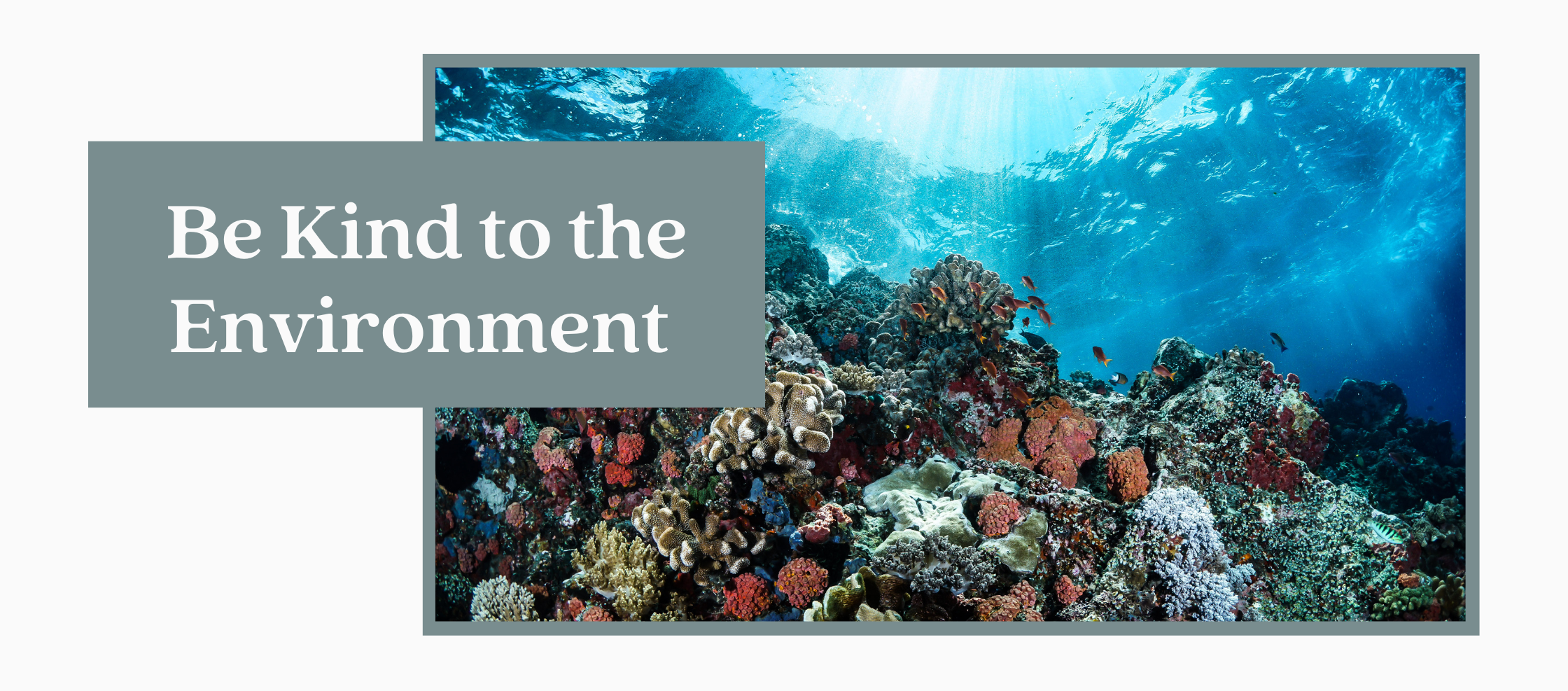
Whatever it may be, for it to remain a natural wonder, tourists need to respect it. This can be as simple as remembering to never leave trash behind, consider non-plastic options, and being conscious of any harmful chemicals or substances you may be introducing. For example, certain sunscreens can be detrimental to the delicate ecosystem of coral reefs. Before you enjoy the natural wonders around you, be sure that you aren’t going to cause any harm or damage by doing so.
Protect the Wildlife
The business side of tourism can be beneficial as well as detrimental when you aren’t careful with how you spend your money. Unfortunately, there are people and businesses out there that are willing to exploit and potentially harm wildlife to make a profit off unsuspecting tourists. When traveling, avoid purchasing anything that is made from endangered or wild plants or animals. This can include animal fur, skins, teeth, horns, shells, coral, and other animal or plant byproducts. What can seem like a unique souvenir might support unethical practices.
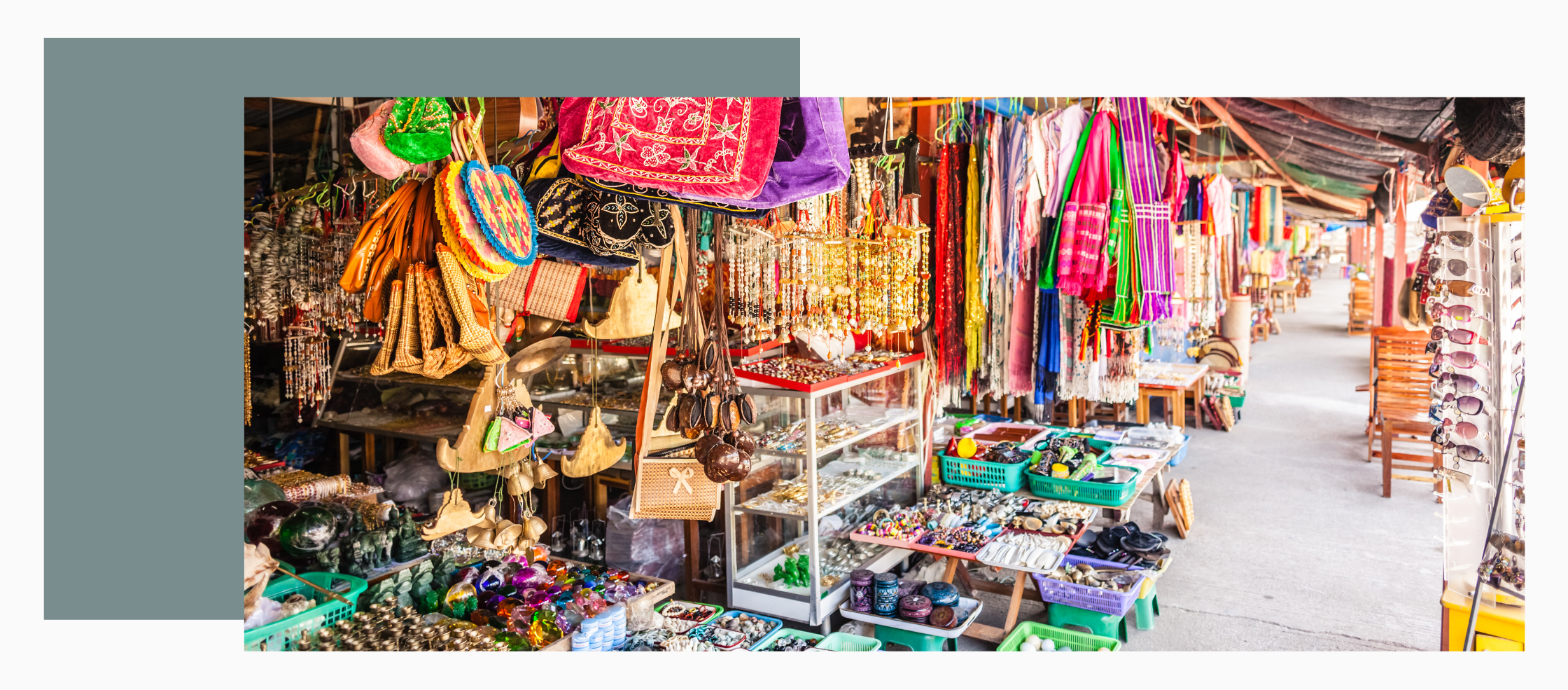
You will also want to take a step back when presented with an opportunity to get your picture taken with wildlife. Often, these animals are taken at a young age and groomed to be domestic. This can often include mistreatment and poor living conditions. The most exploited industries when it comes to these practices include swimming with dolphins or riding an elephant. This doesn’t mean you can’t experience the local wildlife. Instead of falling victim to these tourist traps, look for local organizations or rehabilitation centers that will provide an opportunity to interact with these exotic animals in a respectful manner.
Snap Photos Respectfully
In an age dominated by selfie sticks and phones with multiple cameras, snapping selfies is ingrained in our American culture. This can’t be said for all other places around the world. When traveling, it is natural that you want to capture what your eyes see to show friends and family, as well as store memories of your time traveling. However, be mindful of the people or places you are capturing. Odds are, if a stranger snapped pictures of you, you would find it uncomfortable and upsetting. Before snapping a picture, ask for permission, especially if that picture will likely end up on social media.

Consider How You Travel
Tourism in general creates a lot of greenhouse gasses that are harmful to the environment. When traveling, consider how you are going to get around. Uber and taxis may be convenient, but they demand a lot out of the environment. You may instead consider traveling by foot, biking, or taking a form of public transportation such as a tuk-tuk or a bus.
Sustainable Travel Products
Your commitment to ethical tourism can start before you even pack your bag. Swapping out sustainable products for your average travel kit can significantly decrease your overall carbon footprint. When considering what to pack, resource guides can help you choose items that are better for the environment, from the packing to the product itself.
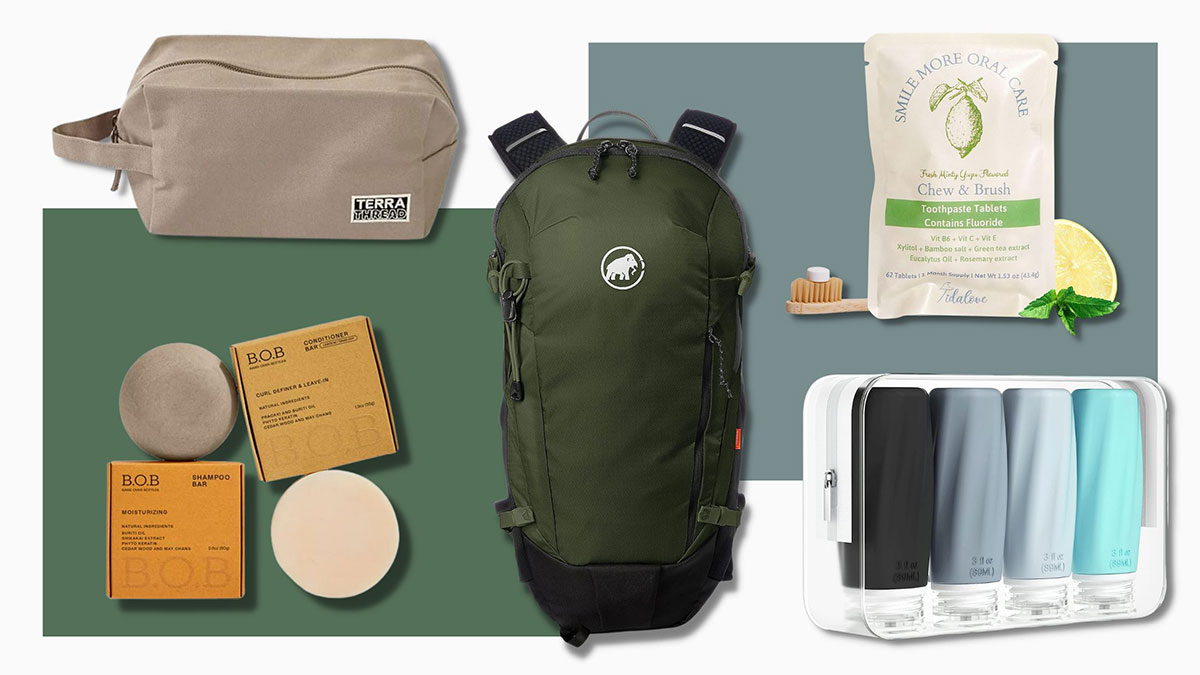
Some of our favorite products include:
- B.O.B. (shop at Amazon) – Bars over bottles allow you to ditch your plastic shampoo and conditioner. You’ll be amazed at how great these products are for your hair and the environment.
- Toothpaste tablets (shop at Amazon)– These are great for those concerned about residual paste, as well as the plastic container typical of oral care. These tablets free up luggage space and are convenient for on-the-go.
- Travel Bags – You’ll find a wide range of sustainable travel bag (shop at Amazon) options on Amazon made with recycled material and designed with travel in mind. From large luggage bags to small travel pouches, you’ll be prepared for anything. You can also find companies that give back to the environment. Brands such as Rice Love deliver one kilo of rice for every bag purchased for families in need.
When it comes to sustainable travel, there are numerous guidebooks, toiletries (shop at Amazon), products, and clothing that you can consider before taking your next big trip. These small swaps can make a huge difference when it comes to protecting the places you go.
Learn More About the Environment
Travel impacts the environment, but this impact doesn’t have to be negative. Tourism can have many positive qualities, such as stimulating a local economy and providing job opportunities for locals. It is also an ideal way for a person traveling to grow through learning about different cultures and lifestyles, sampling exotic cuisines, and connecting with locals on an intimate level. Ethical travel doesn’t mean you have to completely change the way you travel, it simply adds an awareness of how your presence impacts those around you.
Supporting local business and approaching your experience with openness and clarity is the best way to travel ethically. What matters most is respecting the people, cultures, and environment of the area. Visit The Boon Room to learn more about easy ways that you can introduce sustainability into your own life.
Jenny Weatherall is the co-owner and CEO of Eminent SEO, a design and marketing agency founded in 2009. She has worked in the industry since 2005, when she fell in love with digital marketing… and her now husband and partner, Chris. Together they have 6 children and 3 granddaughters.
Jenny has a passion for learning and sharing what she learns. She has researched, written and published hundreds of articles on a wide variety of topics, including: SEO, design, marketing, ethics, business management, sustainability, inclusion, behavioral health, wellness and work-life balance.
